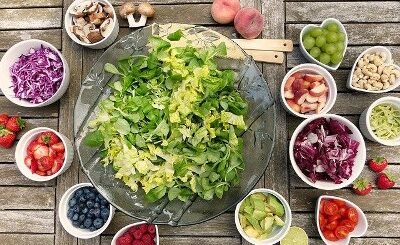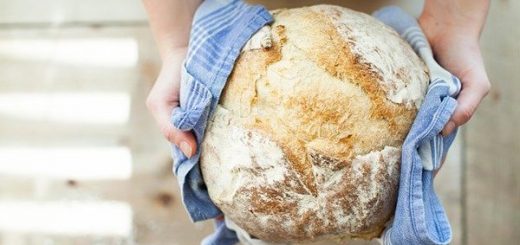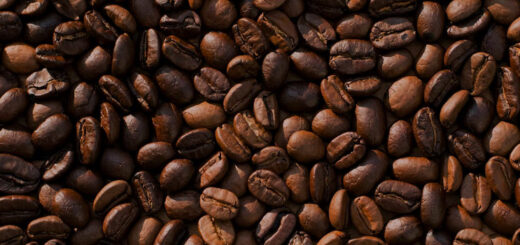Are Peanuts Healthy? Health Benefits and Nutritional Values of Peanuts

You grab a bowl of peanuts and they’re gone in no time, but are peanuts healthy and why? Read on to find out.
Are peanuts healthy or not?
Peanuts are certainly healthy. They are a good source of proteins and contain important amino acids (building blocks of proteins). For example, eat them as a healthy snack or add them to a stir-fry dish.
What are peanuts?
Peanuts are also called oil nut, monkey nut or ground nut or groundnuts. A big misconception about peanuts (Arachis hypogaea) is that they are nuts. Peanuts are botanically a legume and belong to the beans (legumes), such as chickpeas.
Because peanuts have many good nutrients and health effects, as nuts such as walnuts and pistachios contain, peanuts are considered nuts by the Health Council. Peanut seeds are rich in proteins, as they are necessary for growing a new plant.
Peanuts are very versatile. They are not only eaten whole, but also used for making oil, peanut butter and peanut sauce, among other things.
What are the nutritional values of peanuts?
Below you can read what nutritional values are contained in a handful (25 grams) of peanuts.
- Energy: 157 kcal
- Fat: 12.9 g
-Of which saturated fat: 1.9 g - Carbohydrates: 3 g
-Of which sugars: 1.2 g - Fiber: 1.7 g
- Protein: 6.3 g
- Salt: 0 g
What nutrients do peanuts contain?
Below you can read what amount of nutrients you get when you eat a handful (25 grams) of peanuts. It is packed with important minerals, such as magnesium
| Nutrient | Quantity | Recommended Daily Allowance (RDA) |
| Potassium | 189mg | 3500 mg |
| Calcium | 14 mg | Men and women 18-24 years: 1000 mg Men 25-69 years and women 25-49 years 950 mg Women 60-69 years 1100 mg |
| Magnesium | 54 mg | Men 350 mg Women 300 mg |
| Iron | 0.5mg | Men and women who do not menstruate 11 g Women who do menstruate 16 mg* |
| Selenium | 0 µg | 70 µg |
| Vitamin A | 0 µg | Men 800 μg Women 680 μg |
| Vitamin D | 0 µg | 10 μg >70 years People with tanned skin People who rarely go outside and/or cover their hands and face 20 μg |
| Vitamin E | 1.6mg | Men 13 mg Women 11 mg |
| Thiamine (vitamin B1) | 0.04 mg | 0.1mg |
| Riboflavin (vitamin b2) | 0.02mg | 1.6mg |
| Vitamin B6 | 0.04 mg | Men and women 1.5 mg Men >50 years 1.8 mg |
| Folic acid | 14 µg | 300 μg Pregnant and lactating women 400 μg |
| Vitamin B12 | 0 µg | 2.8 μg |
| Niacin | 4.4 mg | 16 mg |
| Vitamin C | 0 mg | 75 mg |
| Iodine | 1 μg [2] | 150 μg Pregnant and/or lactating women 200 μg |
What are the health benefits of peanuts?
Peanuts have several healthy benefits. For example, they are a good source of proteins, which are an important building block for our body. Below you can read more about the health benefits.
It contains a lot of proteins
Like other nuts such as macadamia nuts and almonds , peanuts are a good plant-based source of protein. It is an important source of protein, especially for vegetarians and vegans.
For example, by adding them to a curry you can significantly increase the amount of proteins in a dish.
Proteins have many important (building) functions in our body, such as creating and repairing cells. Building blocks from proteins (amino acids) also have various important roles.
For example, amino acids are important for hormones and the production of other amino acids, which our body can produce itself.
It contains a lot of leucine and phenylalanine
Peanuts contain all amino acids, but the amino acids leucine and phenylalanine contain the most. These are both essential amino acids, which means that you must get this amino acid through food.
Leucine has various functions, such as promoting energy metabolism for protein synthesis (production) and inhibiting protein breakdown.
Phenylalanine is important, among other things, for the production of the neurotransmitters norepinephrine, adrenaline and dopamine in our brains.
Dopamine is also known as the ‘happiness hormone’. Adrenaline is the substance that makes you alert during an emergency, for example. Norepinephrine ensures that you become calm again after the emergency.
RESUME
Peanuts contain many essential amino acids leucine and phenylalanine, which are important for protein synthesis, energy metabolism and neurotransmitters in our brain.
It contains many different vitamins and minerals
Peanuts are a source of many vitamins and minerals. It contains:
- Niacin (B3)
A handful of peanuts contains no less than 2.75 times more than the recommended daily allowance (RDA). This vitamin plays an important role in energy supply and the production of fatty acids. - Vitamin E
This vitamin plays a role in regulating metabolism, but is also an antioxidant. Antioxidants scavenge free radicals, which can potentially cause damage to tissues and cells. This can probably cause diseases in the long term. - Magnesium
This mineral is important for, among other things, the formation of bone and muscle and the proper functioning of muscles and nerve impulses.
It contains antioxidants
Peanuts contain several antioxidants, which can protect us against premature aging and diseases. Antioxidants scavenge free radicals, which can probably cause damage to tissues and cells.
Free radicals are caused by body processes and external factors, such as smoking and the sun.
Peanuts contain the following antioxidants, among others:
- Phenolic acids
These are substances that fall under polyphenols (plant compounds). They are also called bioactive substances. The precise function of this is not yet known, but it is thought that bioactive substances have the same functions as vitamins and minerals. - Flavonoids, such as resveratrol
These are substances found in fruits and vegetables. There are indications that they have positive effects on health, but this needs further research. - Phytosterols
These substances can block the absorption of cholesterol from food. Intake of too much cholesterol increases the risk of cardiovascular disease.
It provides a feeling of satiety for longer
The fats ensure that a meal leaves your stomach slowly, keeping you full for longer. The proteins also ensure a longer feeling of satiety. The fats consist mainly of unsaturated fats, which are good for our health. Peanuts therefore reduce the risk of cardiovascular disease.
It is a healthy and easy snack
Peanuts are an excellent snack. Be careful how much you eat. Before you know it, you have eaten many more peanuts than you intended, which also gives you a lot of energy. Therefore, always eat mindfully and slowly.
It can also help to peel your peanuts yourself, because then you automatically eat more slowly.
RESUME
Peanuts are a good source of protein and also rich in essential amino acids. The fats and proteins give you long-lasting energy after eating peanuts.
Are peanuts good for weight loss?
Peanuts can certainly help you lose weight, provided you don’t eat too many of them. The proteins can ensure that you lose less muscle mass while losing weight. This keeps your energy needs higher, making weight loss easier.
The proteins and fats in peanuts also ensure a feeling of fullness for longer. This makes it an ideal snack if you want to lose weight. Because it contains few carbohydrates and almost no sugar, it also fits well in a low-carb diet .
When are peanuts dangerous?
You may have heard of it: a peanut allergy. In this case, eating peanuts is even life-threatening. Symptoms arise such as mucus formation, inflamed nasal mucosa, asthma and wheezing. A person with a peanut allergy can develop anaphylaxis, which can even lead to death.
People with peanut intolerance usually have less serious complaints, such as sneezing and coughing. Do you have an allergy or intolerance to peanuts? Then you don’t necessarily have to get complaints from nuts, because the chemical structure is different.
You may have cross allergies with, for example, legumes such as peas or birch pollen.
In addition, very salted peanuts are dangerous if you have high blood pressure and/or kidney problems. If you consume too much salt, your high blood pressure will become even higher. Your kidneys have to process salt. If you have kidney problems, this puts a lot of strain on your kidneys.
RESUME
Peanuts are dangerous for people with allergies or intolerances, and salted peanuts are risky for high blood pressure and kidney problems.
Shelled versus unshelled peanuts
Although we prefer salted peanuts, unfortunately they are not healthy. A lot of salt is often added to peanuts, which means you eat a lot of salt. On average, in the Netherlands we eat much more than the recommended maximum amount per day.
If you eat too much salt you have a greater chance of developing high blood pressure and cardiovascular disease. By eating less salt you will get low blood pressure again.
Therefore, better leave those salty peanuts alone. Would you like to eat a little salt? Then add salt to unsalted peanuts yourself. This way you have it in your own hands. Or vary with, for example, paprika powder or chili pepper powder.
Are peanuts with a skin healthy?
Peanuts with skins are especially healthy. The skin contains a large amount of nutrients. In fact, for most foods, the purer you eat it, the better.
Did you know, for example, that a kiwi with skin is also healthier?
But unfortunately this is less easy to clean and many people do not like it very much.
Peanuts with a skin are less healthy for certain people, namely people with intestinal disorders, such as ulcerative colitis and diverticula (small bulges in the intestines). The skins can then get stuck in these bulges and cause complaints regarding the intestinal system.
How many peanuts can you eat per day?
A good guideline is about a handful of peanuts per day. The Health Council recommends eating a handful of nuts or peanuts every day. Also alternate with different types of nuts. This way you get all the important nutrients. Do you eat low-carb? Then you can usually eat a little more peanuts.
Is peanut oil healthy?
Yes, peanut oil is healthy. It is a vegetable oil, which is a healthy choice. Be careful what you use it for. You can safely use this oil up to 210 degrees for, for example, baking, roasting and deep-frying. If you heat it higher, harmful substances can be released.
Is peanut butter healthy?
Peanut butter is a healthy spread. Are you a fan of normal peanut butter? Too bad! Only 100% peanut butter is healthy. This is the variant made from only peanuts.
No unnecessary substances are added, such as sugars. This makes it many times healthier than normal peanut butter
Be careful how much you use. Because peanuts contain many grams of fat and calories, you can quickly consume many more calories if you fill your sandwich or cracker with a slightly thicker layer.
You can also make healthy peanut sauce from this peanut butter. Add some water and sambal and mix it in a pan.
Is peanut or cashew nut healthier?
Before we answer this, we would like to emphasize that both types are healthy. It is healthy to vary the types of nuts. Besides, it gets boring if you eat it every day, right?
So alternate with other notes. Do you still want to eat peanuts regularly? For example, make your own mix of real nuts. This makes it easier to alternate.
If we compare the nutrients of peanuts and cashew nuts, the peanut wins over the cashew nut. It contains a larger amount of almost all nutrients. Peanuts also contain more protein than cashew nuts. The rest of the nutritional value is about the same.
Cashew nuts only score a lot better than peanuts on iron. Cashew nuts contain 3.4 times more iron than peanuts.
Conclusion
A handful of peanuts is a healthy choice, provided you choose unsalted peanuts. Also, don’t choose peanuts that have been roasted. Many valuable nutrients are lost during roasting. Also choose the unroasted variety if you prefer to eat other unsalted nuts.
Peanuts contain a lot of protein and all the necessary amino acids, including a high amount of two essential amino acids. Due to the fats, it does contain a lot of calories, so you should eat peanuts in moderation.











